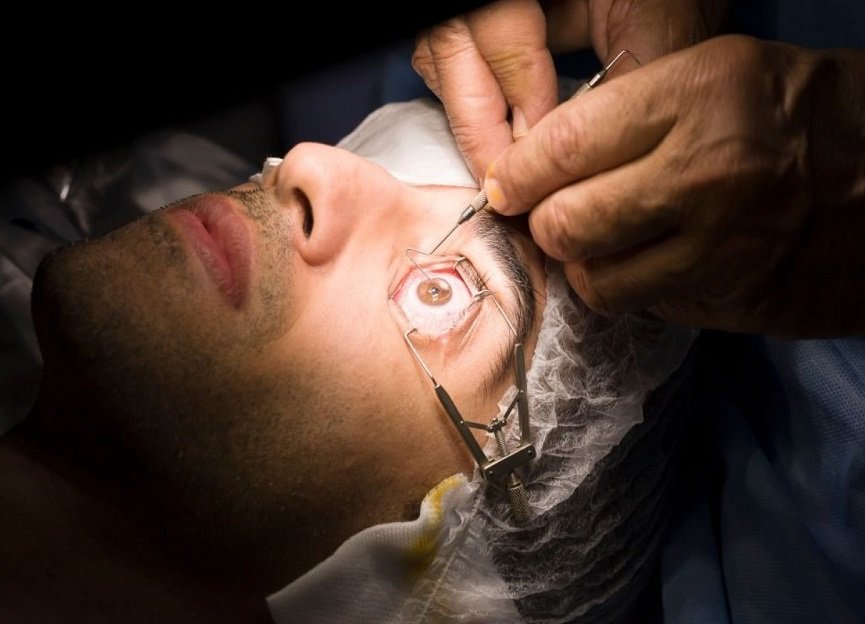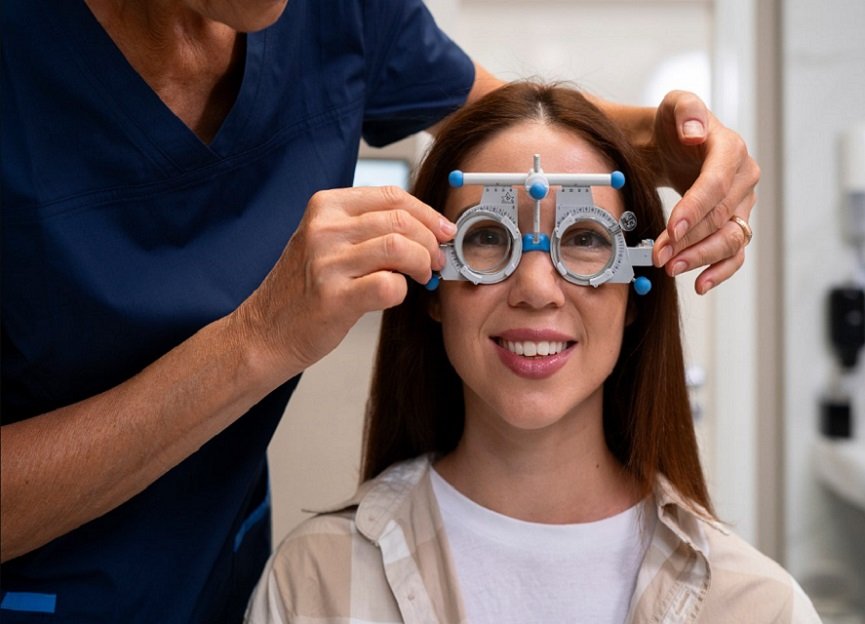
Imagine waking up in the morning and seeing the world clearly without reaching for your glasses or fumbling with contact lenses. For many, this dream has become a reality thanks to LASIK surgery. This revolutionary procedure has transformed how we think about vision correction, offering a chance to break free from the confines of eyewear. But is LASIK eye surgery right for you?
Before diving into the details, it's essential to understand what this laser operation for eyes entails, its pros and cons, and whether you’re an ideal candidate. Join us as we explore everything you need to know about corrective eye surgery—helping you make informed decisions about your eyesight and future.
Understanding LASIK Surgery
LASIK surgery, short for Laser-Assisted In Situ Keratomileusis, is a popular refractive eye surgery designed to correct common vision problems like nearsightedness, farsightedness, and astigmatism. The procedure uses advanced laser technology to reshape the cornea—the clear front part of your eye—allowing light to focus accurately on the retina.
During LASIK surgery, a thin flap is created in the cornea using either a microkeratome or femtosecond laser. Once this flap is lifted, another laser reshapes the underlying tissue based on your unique prescription. Afterward, the flap is carefully repositioned without stitches.
This outpatient procedure typically takes less than 30 minutes per eye and offers rapid recovery times. Most patients notice improved vision almost immediately following their treatment—a major reason why it’s become such a sought-after option among those looking for long-lasting solutions to their eyesight issues.
Pros and Cons of LASIK Surgery
LASIK surgery offers many advantages. One of the most significant benefits is the quick recovery time. Most patients notice improved vision within hours, allowing them to return to daily activities swiftly.
Another plus is the long-lasting results. Many individuals enjoy clear eyesight for years after their procedure, reducing their dependence on glasses or contact lenses.
However, it’s not without drawbacks. Some people experience side effects like dry eyes or glare at night. These issues can be bothersome and may require further treatment.
Cost is another consideration; LASIK can be a substantial investment that insurance often doesn't cover fully. Therefore, weighing your options carefully is essential before committing to this eye surgery.
Understanding both sides helps in making an informed decision about whether laser operation for eyes aligns with your needs and lifestyle.
Who is a Good Candidate for LASIK?
Good candidates for LASIK surgery typically fall within specific age and health guidelines. Most surgeons recommend that applicants be at least 18 years old, as vision can still change during teenage years.
Stable vision is crucial. If your prescription has remained unchanged for over a year, you might be eligible. This stability helps ensure lasting results from the procedure.
Your overall eye health matters too. Conditions like glaucoma or cataracts may disqualify you from this elective surgery. Dry eyes can also complicate recovery, so it’s essential to address any such issues beforehand.
Additionally, certain lifestyle factors play a role in candidacy. Individuals who engage in contact sports should consider how their activities might affect healing after the operation.
Discussing personal expectations with your surgeon is vital. Understanding what LASIK can realistically achieve will help determine if it's right for you.
Preparing for LASIK Surgery
Preparing for LASIK surgery involves several important steps to ensure a smooth experience.
First, it's crucial to schedule a comprehensive eye exam. This will help determine your candidacy and identify any underlying issues.
Next, you’ll want to adjust your current eyewear routine. If you wear contact lenses, stop using them at least two weeks before the procedure. This allows your corneas to return to their natural shape.
Don’t forget about lifestyle adjustments as well. Avoid alcohol and certain medications that can interfere with healing—like blood thinners—prior to the surgery day.
On the night before your appointment, get plenty of rest. Being well-rested contributes significantly to recovery comfort and clarity post-surgery.
Arrange for someone trustworthy to drive you home afterward; you'll need assistance as your vision stabilizes after the laser operation for eyes.
The Procedure
During LASIK surgery, the process begins with the creation of a thin flap in the cornea. This is achieved using either a microkeratome or a laser. Once the flap is lifted, an excimer laser reshapes the underlying corneal tissue to correct your vision.
Patients typically experience minimal discomfort throughout this procedure. It usually lasts around 10 to 15 minutes per eye. Surgeons often provide calming measures and topical anesthetic drops to ensure comfort.
After reshaping, the corneal flap is carefully repositioned without stitches. The body naturally adheres it back in place as healing occurs.
The precision of lasers allows for tailored treatment based on individual needs and prescriptions. Most patients notice improved vision almost immediately after surgery, making it an appealing option for many seeking corrective eye surgery options today.
Recovery and Aftercare
After LASIK surgery, the recovery process is as crucial as the procedure itself. Most patients experience improved vision almost immediately. However, it's important to give your eyes time to heal.
Right after the operation, you might feel some discomfort or a gritty sensation. This is normal and usually subsides within a few hours. Your surgeon will likely prescribe eye drops to help with dryness and prevent infection.
Avoid rubbing your eyes during this period. It’s essential for protecting your newly treated corneas. Wearing sunglasses outdoors can shield against bright lights and any irritants in the air.
Follow-up appointments are key for monitoring healing progress. These check-ups allow your doctor to ensure everything is on track and address any concerns you might have.
Adhering strictly to aftercare instructions will significantly enhance your recovery experience and overall results from laser surgery for eyesight.
Alternative Vision Correction Options
For those considering alternatives to LASIK surgery, several options exist that may suit different needs.
Contact lenses are a popular choice. They offer flexibility and convenience without the permanence of eye surgery. Daily disposables, extended wear, and colored contacts cater to various lifestyles.
Another option is glasses. With endless styles available, they can be as much a fashion statement as a necessity. Prescription sunglasses also provide protection while enhancing vision outdoors.
Orthokeratology involves wearing specially designed contact lenses overnight to reshape the cornea temporarily. This method allows for clear daytime vision without corrective eyewear.
Refractive lens exchange is another alternative where the natural lens is replaced with an artificial one. It’s particularly beneficial for those with severe refractive errors or presbyopia.
Implantable collamer lenses (ICL) can be inserted inside the eye for significant vision correction without altering the cornea at all. Each option has unique benefits tailored to individual preferences and visual needs.
Choosing the Right Surgeon
Selecting the right surgeon for your LASIK surgery is crucial. It can significantly impact your experience and outcomes.
At AIY Eye Care, we prioritize expertise and personalized care. Our team consists of highly trained ophthalmologists with extensive experience in refractive eye surgery.
When choosing a surgeon, consider their credentials and track record. Look for reviews from previous patients to gauge satisfaction levels and success rates.
Technology also matters. At AIY Eye Care, we use advanced laser systems to ensure precision during the procedure.
Don’t hesitate to ask questions during consultations. Understanding the process will help ease any concerns you may have about eye surgery.
A strong patient-surgeon relationship fosters trust. This connection can lead to a more comfortable surgical journey as well as better post-operative care plans tailored just for you.
Conclusion
Choosing to undergo LASIK surgery is a significant decision that requires thorough consideration. Understanding the intricacies of this eye surgery, from its benefits and drawbacks to the specifics of the procedure itself, can empower you on your journey toward better vision.
For those exploring alternatives or seeking personal guidance through their options, consulting with professionals at AIY Eye Care can provide clarity and confidence in your choices. With advancements in refractive eye surgery technology continually evolving, many patients find themselves wondering if they should take that step towards enhanced eyesight.
Making an informed decision about LASIK involves weighing all these factors carefully. It’s about finding out what's best suited for your unique vision needs and lifestyle preferences. Whether you're looking for laser eye surgery near me or want more information regarding lasik laser eye surgery side effects, remember that expert advice is invaluable.
Your path to clearer vision begins with understanding all facets of LASIK and connecting with qualified professionals who care about achieving optimal outcomes tailored just for you.




